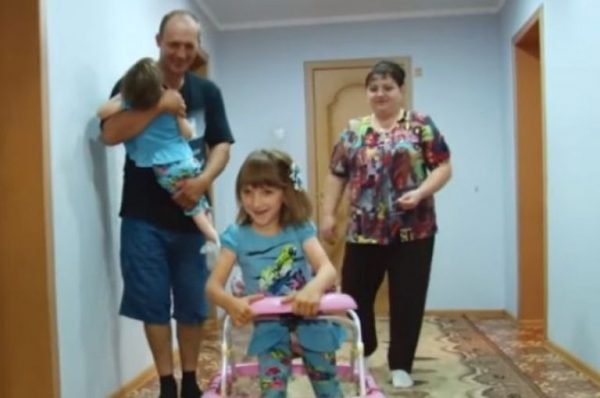Elena Yachmeneva’s 22nd week of pregnancy brought an unexpected revelation: her soon-to-be-born twins were conjoined. This startling discovery threw her plans into disarray.

The medical team advised that to save the babies, an early delivery would be necessary. Years prior, Elena had resolved against having more children due to health concerns and had even undergone a procedure to have her fallopian tubes tied. However, nearly a decade later, she found herself pregnant with twins. Despite initial fears, she embraced the prospect of motherhood once again.

The realization that her twins shared connected livers and intestines was a blow to Elena’s mother. A cesarean section was performed, followed by plans for a surgical separation three months later, allowing the twins time to strengthen. Post-surgery, both girls survived; one was expected to walk eventually, while the prospects for the other were less hopeful.
Mentally, the twins developed normally but slightly behind their peers. They engaged in typical childhood activities like drawing and watching cartoons. One sister, unfortunately, could not sit or support herself and required constant physical support from her mother, becoming distressed when left alone.

The other twin used a walker and participated in household activities, displaying affection and empathy towards her sister. The local community supported the family by providing additional living space and home renovations. Despite this aid, the ongoing care for the daughters was demanding and expensive. The family persevered, maintaining their farm and even starting an apiary.
The last media visit in 2018 highlighted the family’s struggle with inadequate technical rehabilitation support. Following the broadcast, unexpected attention from local legal and welfare authorities led to inspections and inquiries about the twins’ care and living conditions. Despite initial concerns, the authorities found the children were well cared for and living in good conditions. However, concerns from the Committee on Juvenile Affairs about inadequate medical attention led to increased scrutiny.




